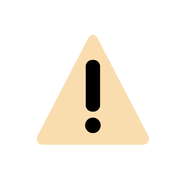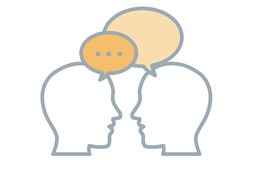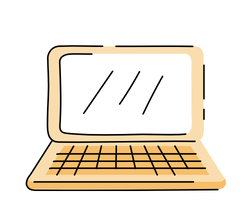Warning Signs/SYMPTOMS ⚠︎︎
- Signs that someone else might have a drug addiction:
- Aggression
- Changes in attitude & personality
- Dramatic changes in habits
- Social impairment
- Failure at work or home (priority on the substance)
- Damage to relationships
- Reduced engagement
- Failure at work or home (priority on the substance)
- Lack of Control
- Inability to cut back on substance
- Excessive amount relative person/culture
- Substance use consumes an excessive amount of time
- Evidence of cue-induced cravings
- Inability to cut back on substance
- Excessive Risk
- Dangerous use
- Continued use despite awareness
- Physiological Changes
- Changes in tolerance
- Withdrawal
- Physical signs can include, but are not limited to:
- Bloodshot or red eyes
- Dilated or constricted pupils
- Poor physical condition
- Abrupt weight changes
- Discoloration of the skin
- Potential signs of a substance addiction:
- You need more of something to feel the intended effect (i.e: painkillers).
- You are spending large amounts of time thinking about the drug (how you can get more, how you'll feel better after, when you'll take it next).
- You've lost interest in things that once interested you.
- You hide the drug use or the effect it may have on you from others.
- You borrow or steal money to pay for the drugs.
Risk Factors
Some may be at higher risk of substance abuse if they have experienced any of the following:
- Environmental Factors: A chaotic household, abuse, peer influences, & more.
- Other mental illnesses
- Peer pressure
- Extreme stress
- Lack of sleep & fatigued
- Use of drugs at a young age
- Family history of addiction
- Academic failure or lack of academic motivation
- Alienation from peers and family
- Pressure to excel in sports
How to Help
- Helping someone struggling with substance abuse:
- Do's
- Be consistent with rules, expectations, promises, AND consequences.
- Make sure to give encouragement! Give verbal and physical encouragement for accomplishments. Every milestone is important!
- Gain education, so you know exactly how to help them.
- Use assertive communication to find a compromise.
- Set a healthy lifestyle example.
- BE OPTIMISTIC & take care of your own wellness!
- Don'ts:
- Don't shame the person for not being able to maintain sobriety.
- Don't speak negatively or accusingly: This can trigger feelings of shame and guilt.
- Don't place the sole responsibility on them.
- Remember that you can't fight the fight FOR them. You have to HELP them overcome it.
- Do's
Help Resources
- American Academy of Addiction Psychiatry: CLICK HERE
- Find a Recovery Center Near You: CLICK HERE
- The Hopeline: CLICK HERE
- SAMHSA National Helpline : 1-800-662- HELP (4357)
- National Alliance on Mental Illness: 1-800-950-6264
- CDC Division of Mental Health: 1-800-CDC-INFO (1-800-232-4636)
More about Substance ABuse
- What is Substance Abuse? caron.org
- World Health Organization: who.int
- National Institute of Mental Health: nimh.nih.gov
- Centers for Disease Control and Prevention: cdc.gov
- American Psychological Association: apa.org
- Substance Abuse and Mental Health Administration: samhsa.gov
Proudly powered by Weebly


